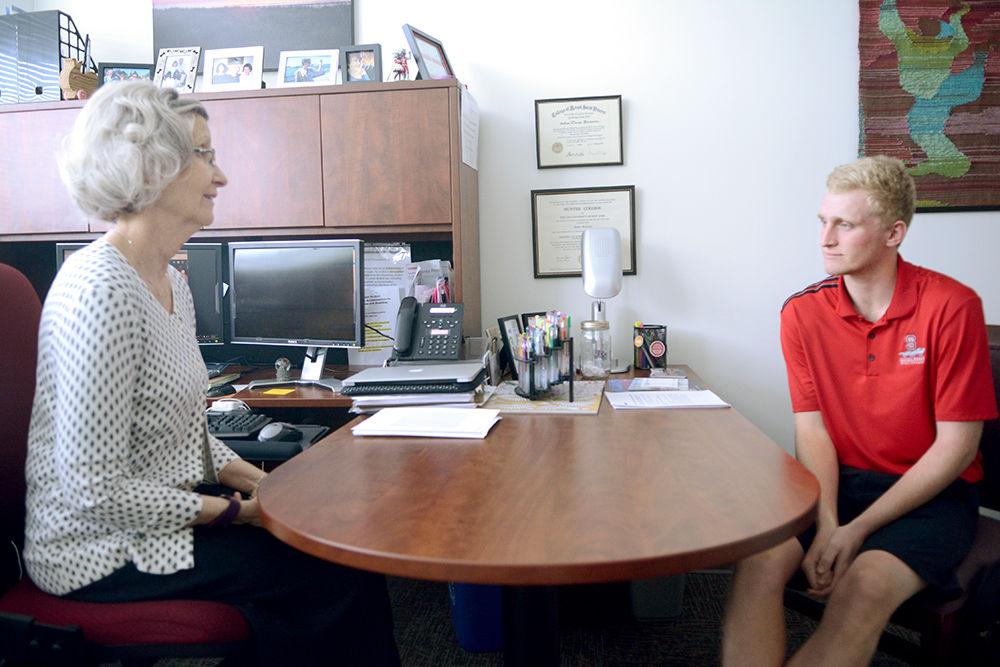NC State’s Disability Services Office, commonly referred to as DSO, has been assisting students with physical, psychological, learning, chronic and temporary disabilities since 1985. Previously housed under the Counseling Center, the DSO is currently joined with the Division of Academic and Student Affairs and services faculty and staff in addition to students.
With over 70 temporary student workers and eight professional support staff members, the DSO offers a variety of services. Mark Newmiller, the director of the DSO, discussed the work that the office does.
“Students self-disclose to the DSO if they have a disability and require accommodations to access the educational environment at NC State,” Newmiller said. “We assist faculty in implementing accommodations and providing assistive technology or other means of access when needed. This includes alternate format for class materials and textbooks, interpreters or captioning services for live classes.”
Every position in the DSO has a purpose and further helps the rest of the office function. Beyond an office manager and receptionist, three access consultants review documentation and determine reasonable accommodations, according to Newmiller. These three individuals consult with faculty in determining additional or alternative options if an accommodation can’t be implemented.
“There is a coordinator of testing that coordinates the proctoring center for students and faculty needing testing accommodations,” Newmiller said. “There is an assistive technology coordinator that consults with faculty on the accessibility of their materials. She also consults with students on their need for technology and trains them on the proper use of any special equipment or software.”
Student workers also serve throughout the semester in classrooms as note takers and access assistants, according to Newmiller. They are also used as proctors during heavy testing times and as scribes for tests when required.
Qualified students, staff, faculty and visitors with disabilities that substantially limit a major life activity have the right to reasonable accommodations and confidentiality to the extent allowed by law. Qualified individuals also have a right to equal participation in and access to the benefits, services, programs and activities of NC State. An extensive list of rights, responsibilities and policies for individuals with disabilities can be found online: https://dso.dasa.ncsu.edu/responsibilities/.
The DSO also helps incoming freshman transition from high school accommodations to university accommodations. Listed along with other resources for transition on the DSO website, this page describes rights and responsibilities of students preparing to attend post-secondary schools: https://www2.ed.gov/about/offices/list/ocr/transition.html.
This information includes explanations for what documentation to give, what academic adjustments the post-secondary school must provide and what to do if an individual believes the school is discriminating against them. Sabina Vermeulen, the associate director of the DSO, discussed the office’s services and accommodations.
“The DSO provides reasonable accommodations to allow equal access for students who are experiencing barriers in their academic program due to their disability limitations,” Vermeulen said. “DSO assists faculty in implementing accommodations. Accommodations are individualized and provided on a case by case basis.”
An extensive list of DSO accommodations can be found at https://dso.dasa.ncsu.edu/accommodation-descriptions/. While DSO requires qualified individuals to disclose their disability status to provide services and accommodations, it is their personal choice to disclose.
“It is a personal choice whether to disclose a disability and submit documentation,” Vermeulen said. “DSO registration is available online and should be completed as soon as possible. DSO staff is available to answer questions and can provide assistance if needed. There are no additional college fees or charges to register with the DSO or to receive accommodations.”
The DSO continues to refine its services with new changes for this year and plans for improvement in the future.
“The DSO has a new proctoring center in the First-Year College Commons building,” Newmiller said. “Previously, students had to go to different locations for testing accommodations. In the future, we hope to encourage more faculty to utilize universal design for learning principles in the design and delivery of their courses.”













